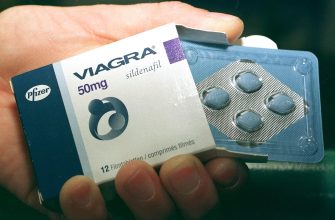If you have low blood pressure and are considering Viagra, consult your doctor before taking it. Viagra, or sildenafil, lowers blood pressure, and combining it with already low blood pressure can lead to dangerous drops. This isn’t a casual decision; your health is paramount.
Specific blood pressure thresholds for safe Viagra use vary depending on individual health factors and the specific Viagra dosage. Your physician will assess your complete medical history, including any existing conditions and medications, to determine whether Viagra is appropriate and, if so, the safest and most effective dosage. They’ll likely monitor your blood pressure closely before, during, and after treatment.
Alternatives to Viagra exist. Your doctor might suggest alternative treatments for erectile dysfunction if they deem Viagra too risky given your low blood pressure. These could include lifestyle changes, other medications, or even therapy. Open communication with your healthcare provider is key to finding the best solution for you.
Remember, self-treating can be harmful. Ignoring low blood pressure and using Viagra without medical guidance could result in serious complications, including dizziness, fainting, or even more severe cardiovascular issues. Prioritize your safety; schedule a consultation.
- Low Blood Pressure and Viagra: Understanding the Risks
- Monitoring Blood Pressure
- Dosage and Alternatives
- Potential Dangers of Viagra with Hypotension: Recognizing Symptoms and Seeking Medical Attention
- Recognizing Dangerous Symptoms
- Seeking Immediate Medical Attention
- Understanding the Interaction
- Managing Low Blood Pressure and Sexual Health: Alternative Approaches and Safe Practices
- Exploring Alternative Treatments and Lifestyle Changes for Erectile Dysfunction
- Managing Underlying Health Conditions
- Alternative Therapies
- Medication Alternatives
Low Blood Pressure and Viagra: Understanding the Risks
Viagra, or sildenafil, lowers blood pressure. If you already have low blood pressure (hypotension), combining it with Viagra can cause a dangerous drop in blood pressure, leading to dizziness, fainting, or even a heart attack. This risk is amplified if you’re also taking nitrates, commonly prescribed for chest pain. Always inform your doctor about all medications you’re taking, including over-the-counter drugs and supplements.
Monitoring Blood Pressure
Regular blood pressure checks are crucial. Before starting Viagra, your doctor will likely assess your blood pressure. Consistent monitoring during treatment allows for early detection of any adverse effects. Report any sudden dizziness or lightheadedness immediately.
Dosage and Alternatives
Your doctor may prescribe a lower dose of Viagra or suggest alternative treatments for erectile dysfunction if you have low blood pressure. These alternatives might include other medications or lifestyle changes. Open communication with your healthcare provider is paramount.
Potential Dangers of Viagra with Hypotension: Recognizing Symptoms and Seeking Medical Attention
Taking Viagra with low blood pressure (hypotension) significantly increases the risk of dangerous side effects. Always consult your doctor before combining these.
Recognizing Dangerous Symptoms
Be vigilant for these warning signs:
- Dizziness or lightheadedness
- Fainting or near-fainting
- Sudden drop in blood pressure
- Chest pain or discomfort
- Shortness of breath
- Irregular heartbeat
- Severe headache
- Vision changes
These symptoms can indicate a serious adverse reaction. Delay can be harmful.
Seeking Immediate Medical Attention
If you experience any of the above symptoms after taking Viagra while having low blood pressure:
- Stop taking Viagra immediately.
- Lie down and elevate your legs.
- Contact emergency medical services or your doctor without delay. Time is of the essence.
Your doctor may suggest alternative treatments for erectile dysfunction that are safer for individuals with hypotension. Open communication with your physician is key to managing your health effectively.
Understanding the Interaction
Viagra, a vasodilator, widens blood vessels, potentially causing a further drop in blood pressure, already low in hypotension. This combination can strain the cardiovascular system.
Managing Low Blood Pressure and Sexual Health: Alternative Approaches and Safe Practices
Prioritize regular blood pressure monitoring. Consistent readings help you and your doctor track your pressure and adjust medication accordingly. This proactive approach minimizes risks during sexual activity.
Consider lifestyle modifications. Regular exercise, a balanced diet rich in fruits and vegetables, and stress reduction techniques like meditation or yoga can positively impact blood pressure. Aim for at least 30 minutes of moderate-intensity exercise most days of the week.
Communicate openly with your doctor. Discuss your blood pressure levels and sexual health concerns thoroughly. Your doctor can help you develop a tailored plan to manage both, perhaps recommending alternative medications or therapies.
Explore alternative treatments. Some men find that addressing underlying conditions like sleep apnea or hormonal imbalances improves both blood pressure and sexual function. Consult your doctor before starting any new treatment.
Practice safe sex. Using condoms and avoiding risky sexual behaviors helps protect against sexually transmitted infections and reduces potential complications that could exacerbate low blood pressure.
Adjust timing of sexual activity. Engage in sexual activity when blood pressure is most stable. For some, this may be after a restful period or after a light meal.
Gradual increase in activity. Avoid sudden exertion during intercourse. Start slowly and gradually increase physical activity to avoid sudden drops in blood pressure.
Hydration is Key. Maintaining adequate hydration can help to regulate blood pressure. Drink plenty of fluids throughout the day.
Consult a sex therapist. If psychological factors contribute to sexual dysfunction, a therapist can offer guidance and support to improve your sexual health.
Exploring Alternative Treatments and Lifestyle Changes for Erectile Dysfunction
Consider regular exercise. Aim for at least 150 minutes of moderate-intensity aerobic activity per week, like brisk walking or cycling. This improves cardiovascular health, a key factor in erectile function.
Dietary changes can significantly help. Focus on a diet rich in fruits, vegetables, and whole grains. Limit processed foods, saturated fats, and red meat. Increase your intake of foods high in antioxidants, like berries and leafy greens.
Managing Underlying Health Conditions
Address any underlying health issues. Conditions like diabetes, high cholesterol, and heart disease frequently contribute to erectile dysfunction. Work closely with your doctor to manage these conditions effectively. This often involves medication and lifestyle adjustments.
Alternative Therapies
Explore alternative therapies like acupuncture or pelvic floor exercises. Acupuncture may improve blood flow, while Kegel exercises strengthen pelvic muscles, enhancing erectile function. Always discuss these options with your healthcare provider before starting.
Stress reduction techniques are also crucial. Chronic stress negatively impacts erectile function. Incorporate relaxation techniques into your daily routine, such as yoga, meditation, or deep breathing exercises. Sufficient sleep is also vital; aim for 7-9 hours of quality sleep each night.
Medication Alternatives
Discuss non-Viagra medication options with your doctor. There are various oral medications, injections, and vacuum devices available that can effectively treat erectile dysfunction. They offer alternative approaches depending on individual needs and health conditions.





